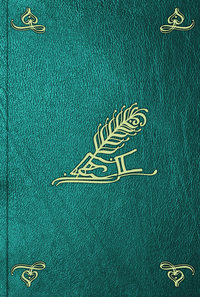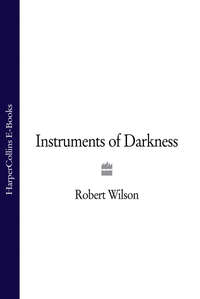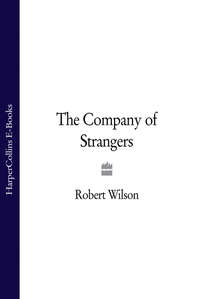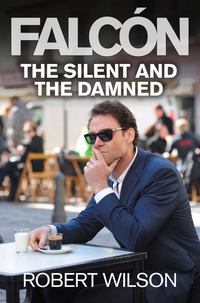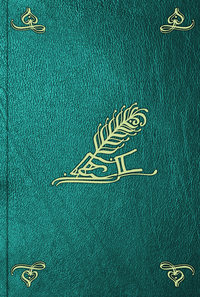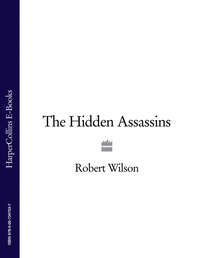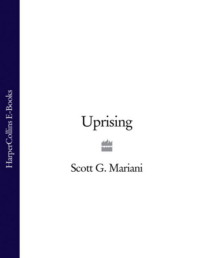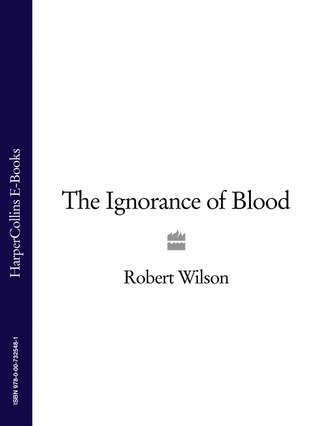
Полная версия
The Ignorance of Blood
His mobile vibrating against his chest brought him back with a start to the dusty fields flashing past. It was his police mobile and he took the call without checking the name on the screen.
‘Listen, Inspector Jefe Javier Falcón. Keep your nose out of things that don't concern you.’
‘Who is this?’
‘You heard.’
The line went dead. He checked the number. Withheld. He folded the phone away. The woman opposite was looking at him again. Across the aisle they were watching him, too. Paranoia, that horribly infectious disease, closed in. The voice on the mobile. Had there been an accent? How had they got his police number? Something a little more uncomfortable than satisfaction eased between his shoulder blades as he realized that, in putting pressure on Marisa Moreno, he must be on the right track. He'd been dredging his mind for something to talk about to Inspector Jefe Zorrita. He didn't want to annoy him with a bunch of hairline cracks in his cast-iron case. Now things were firming up in his mind.
The train eased into the Atocha station. Falcón hadn't arrived in Madrid on the AVE for some years and as he came into the main concourse he was distracted by the continuing memorial to the victims of the 11 March 2004 bombings. He was standing there, looking at the flowers and candles, when the woman from the train appeared by his side. This was too much, he thought.
‘Forgive me, now I know it must be you,’ she said. ‘You are Javier Falcón, aren't you? May I shake your hand and tell you how much I admire you for what you said on the television, about catching the perpetrators of the Seville bomb. Now I've seen you in the flesh, I know you won't let us down.’
He held out his hand, almost in a trance, thanked her. She smiled and brushed past him and in that moment he found that his other hand now contained a piece of folded paper. He wasn't sure who'd put it there, but he was sensible enough not to look at it. He left the station, picked up a cab to the Jefatura. The folded note gave an address just off the Plaza de la Paja in the Latina district and instructions to enter via the garage.
Inspector Jefe Luis Zorrita welcomed him into his office. He was wearing a dark blue suit, a red tie and a white shirt in a way that hinted that minus the tie was about as informal as he ever got. He had his black hair combed back in rails to reveal a forehead with three lines drawn to a focal point above the bridge of his nose. It struck Falcón that there was no mistaking him for anything other than a cop. His hardness had been added in layers; the lacquer of experience. A meeting of the eyes, a handshake, dispelled any possibility that this person was a civil servant or businessman. He had seen it all, heard it all, and his whole family structure and belief system had kept him powerfully sane.
‘You look tired, Javier,’ he said, falling back into his chair. ‘It never stops, does it?’
They looked out of the window at the bright, sunlit world that kept them so fully employed. Falcón's eyes shifted back to the desk where there was a photo of Zorrita with his wife and three children.
‘I didn't want to do this over the phone,’ said Falcón. ‘I have enormous respect for the work you did last June under very difficult circumstances…’
‘What have you found?’ asked Zorrita, cutting through the preliminaries, interested to hear what he could possibly have missed.
‘As yet … nothing.’
Zorrita sat back, hands clasped over his flat, hard stomach. Not so concerned now that he knew he wasn't going to have to confront a failing on his part.
‘My interest in this case is not to get a wife-beater and suspected murderer off the hook,’ said Falcón.
‘That man is a cabrón,’ said Zorrita with profound distaste from behind his family photograph. ‘A nasty, arrogant… cabrón.’
‘He's beginning to recognize that himself,’ said Falcón.
‘I'll believe that when I see it,’ said Zorrita, who was a man incapable of complications in his love life, because there'd only ever been one woman in it.
‘The prison governor just called me to say that he's volunteered to see a shrink.’
‘No amount of talking, no amount of disentangling the shit that went on between him and his parents, no amount of “light” shed on “feelings”, will take away the fact that he beat that poor woman and then killed her and, if he's given half a chance, like all those other weak brutes, he'll do it again.’
‘This isn't what I've come to talk to you about today,’ said Falcón, seeing that this was something that stoked Zorrita up. ‘Would you mind if I laid out the basic problem I've got? Some of it you'll know, but other parts of it will be news to you.’
‘Go ahead,’ said Zorrita, still simmering.
‘As you know, the destruction of the pre-school and apartment block by the Seville bomb of 6th June, three months ago, came about as a result of the detonation, by a smaller device, of approximately one hundred kilos of hexogen. This high explosive was being stored by a logistics cell of the Moroccan terrorist group, the GICM, in the basement mosque of the building. The smaller device was comprised of Goma 2 Eco, the same explosive used in the 11th March bombings here in Madrid back in 2004. Prior to the explosion, the mosque was cased by two men masquerading as council inspectors, who, we believe, inserted some device in the fuse box, which blew and caused a power failure. These men have not been found, nor have the electricians who were brought in to repair the fuse box, restore power and do some other work, during which we believe they planted the Goma 2 Eco device in the false ceiling of the mosque.
‘The idea of the so-called Catholic conspiracy was to use this outrage to blame Islamic extremists, to make it look as if they had a plan to return Andalucía to the Muslim fold. The conspirators wanted to turn public opinion in favour of a small right-wing party called Fuerza Andalucía, who, in becoming the new partner of the ruling Partido Popular, would put the conspirators in control of the Andalucían state parliament. It didn't work and the alleged masterminds of the plot – César Benito, a board director of Horizonte, and Lucrecio Arenas, the ex-CEO of Banco Omni, who were Horizonte's bankers – were executed a few days after the bombing.’
‘What about the Islamic calling cards left near their bodies?’ asked Zorrita.
‘Nobody thinks that those killings were carried out by any radical Islamist group,’ said Falcón. ‘It's believed they were terminated by their co-conspirators.’
‘Who are, as yet, unknown.’
‘We're coming to that.’
‘What about the company that owned Horizonte?’ said Zorrita, squinting at the evening sunlight coming in through the window. ‘The media tried to make something of them – a couple of American Christian fundamentalists.’
‘I4IT own Horizonte. It's an American investment group run by two born-again Christians, called Cortland Fallenbach and Morgan Havilland. They are so far removed from this situation as to be completely untouchable and, for legal reasons, we have as yet been unable to gain access to I4IT's European offices here in Madrid.’
‘And presumably the lives of the Catholic Kings, as the media now calls César Benito and Lucrecio Arenas, have been taken apart.’
‘That has been, and still is, a time-consuming business. The CNI's banking and accounting department are working their way into the offshore world. Benito and Arenas were what are known in that world as Hen-Wees – High Net Worth Individuals. Their assets are hidden behind nominee directors and shareholders and unregistered offshore trusts. It will be pure luck if somebody manages to find something in the next six months that we can act upon.’
‘So you're blocked,’ said Zorrita. ‘And the whole of Spain knows what Javier Falcón is after.’
‘I think I only want what any police officer in my position would want,’ said Falcón, leaning forward in his chair. ‘To catch the people responsible for casing that mosque and planting the Goma 2 Eco device, along with the bosses who ordered them to do it.’
Zorrita held up his hand to calm Falcón down, nodded his agreement.
‘You're not getting anything from the suspects in your custody and the two ringleaders have been “executed”,’ said Zorrita. ‘So where else have you got to go?’
‘I've decided to take a long look at the violence,’ said Falcón. ‘Where do a bunch of conspirators, sophisticated men like Lucrecio Arenas and César Benito, access that sort of violence?’
‘As you say, every news channel and paper, apart from the ABC, are calling this the Catholic Conspiracy. What with the national obsession with Opus Dei, the PR campaign by the Church to counteract all this has been unprecedented,’ said Zorrita. ‘Do Opus Dei have an Improvised Explosive Device division?’
The two men smiled at each other.
‘What we do know from our suspects in custody and other inquiries is that Arenas's motivation was not his Catholic beliefs,’ said Falcón. ‘The Hen-Wee spoke from his heart.’
‘And César Benito was in construction,’ said Zorrita.
‘Where there's always large amounts of black money, which can be hidden away in the offshore world.’
‘But you're not getting anywhere by following the money,’ said Zorrita.
‘Only that there's undoubtedly money-laundering involved and that both men were well set up in property in the Costa del Sol.’
‘The Russian mafia,’ said Zorrita. ‘I know it's a knee-jerk reaction when you hear the words “money-laundering” and “Costa del Sol” in the same sentence, but after the recent Marbella town council scandal…’
Falcón nodded.
‘And you think they're going to be easier to penetrate than the offshore world?’ said Zorrita.
‘Let's just take a look at the violence,’ said Falcón, holding up a finger. ‘In that period around the 6th June bombing there were five expressions of violence. The first was the murder of Tateb Hassani, who was vital to the conspiracy for his drafting in Arabic script of the extremists' plans for taking over Andalucía. He was found on the Seville dump, poisoned and mutilated, on the morning of the explosion. Murdered because a) he knew too much, b) he would always be a vulnerable point to the conspiracy and c) it got everybody's hands dirty. The second expression of violence was the bomb itself which, as I said, was designed to point the finger at Muslim extremism whilst increasing the prestige of Fuerza Andalucía, making them the preferred partners of the ruling Partido Popular.’
‘The third, presumably, was Esteban Calderón's murder of his wife,’ said Zorrita, ‘which derailed the investigation into the Seville bombing.’
‘And four and five were the executions of Lucrecio Arenas and César Benito,’ said Falcón. ‘They had to be killed once we'd caught the other half of the conspiracy, because there were direct links between them. It would only be a matter of time before Arenas and Benito gave up the bombers they had employed.’
‘So there's a clear motive in every case.’
‘Except Calderón,’ said Falcón.
‘He was beating her, that was clear, and he's never denied it,’ said Zorrita. ‘If he didn't kill her, then why didn't he just call the police when he discovered her dead body in their apartment? Why did he try to dispose of her body in the river?’
‘He made a serious error of judgement.’
‘You're telling me.’
‘Another angle,’ said Falcón. ‘What was the worst thing that could have happened to our investigation of the Seville bombing?’
‘I agree, losing Calderón at that stage was a disaster for you.’
‘He was at the top of his game,’ said Falcón. ‘Giving good direction. Keeping the media away from my squad, the counter-terrorism guys and the CNI. If you were at the zenith of your career, would you choose that moment to murder your wife?’
‘He chose that moment to start abusing her.’
‘And that was important.’
‘Why?’
‘Because I think that when Marisa Moreno saw Inés in the Murillo Gardens she noticed somehow that she was being abused,’ said Falcón. ‘I've just been speaking to her, getting her family background. Her natural mother “disappeared” in Cuba. Her attitude to her dead father was not exactly respectful. He was, like Calderón, an inveterate womanizer. She had more time for her Sevillana stepmother than she did for him.’
‘This isn't going to stand up anywhere near a court, Javier.’
‘I know; all I'm trying to do here is find weaknesses. The only killing about which there's a very slight doubt in my mind is that of Inés.’
‘But not in my mind, Javier.’
‘Two hours after I'd been to see Marisa this afternoon I got an anonymous phone call telling me to keep my nose out of things that were not my concern.’
‘It wasn't from me,’ said Zorrita, deadpan.
They laughed.
‘What else did Marisa tell you?’ asked Zorrita. ‘You must have something more than that.’
‘I decided to go to see Marisa to ram a stick in the wasps' nest, to see what happened,’ said Falcón. ‘The only thing I had to go on was something one of my officers found while trying to dig up some dirt on her.’
‘Marisa had no criminal record, I know that,’ said Zorrita.
‘The only thing my officer found was that Marisa had reported her sister missing.’
‘When?’
‘Eight years ago.’
‘You really are clutching at straws, Javier.’
Falcón was tempted to tell Zorrita about Marisa's wood carving, but another glance at the family photo on the desktop persuaded him otherwise. He felt weak in front of Zorrita's steadiness, but still resisted the temptation to point up all the other little flaws he'd found.
‘Marisa is no fool,’ said Falcón. ‘If you despised your womanizing father, would you be drawn to an incorrigible womanizer yourself?’
‘I doubt it would be the first time it had happened,’ said Zorrita, still feeling as solid as a rock.
‘Her sister went missing again, but this time she was over eighteen.’
‘So Marisa didn't go to the police.’
‘Her sister is the only family Marisa's got. Father, mother and stepmother are dead. Would you just shrug your shoulders if your sister ran off again?’
‘If I didn't care, yes,’ said Zorrita.
‘She cares,’ said Falcón.
‘You've still got a long way to go with this, Javier.’
‘I know,’ said Falcón. ‘I just wanted to ask you if you'd mind me digging around.’
‘Dig away, Javier. The way you're going, you'll come out in Buenos Aires.’
6
La Latina district, Madrid – Friday, 15th September 2006,19.45 hrs
The early-evening sun was still bright, but low in the sky so it was already dark in the cavernous Madrid streets. Falcón was sitting in the back of a patrol car, which Zorrita had arranged for him. He felt foolish as they left the Jefatura and he lay down across the back seat. The driver saw him out of the corner of his eye. Falcon told him to keep looking straight ahead.
The driver dropped him off at the Ópera metro station and Falcón took the one-stop ride to La Latina. He checked the other occupants of the metro carriage. He was still smarting at Zorrita's scorn for his theory on Marisa Moreno. Was all this getting out of control in his mind? Everything looked dangerously plausible at three in the morning, but laughable by ten. And did he really have to be this careful about his assignation with Yacoub? Were there actually people on every street corner looking out for him? Once your mind had been proven unstable there was always a doubt, and not just to outsiders.
A car went into the garage of the apartment block on Calle Alfonso VI and Falcón ducked in behind it as the door was closing. He walked down into the dark, took the lift up to the third floor, stepped out into an empty landing, rang the buzzer and waited. He sensed the eyeball on the other side of the peep-hole. The door clicked open. Yacoub beckoned him in. They went through the customary pleasantries; Falcón asked after Yacoub's wife, Yousra, and his two children, Abdullah and Leila. There was nodding and thanks, but Yacoub was strangely subdued.
A full ashtray was the centrepiece of the living room, with a smoking, filterless cigarette on its edge. The curtains were drawn. A single lamp in the corner half-lit the room. Yacoub was wearing faded jeans and a white shirt untucked. He was barefoot and he'd shaved his long hair off to a short stubble, which he kept dusting with the palm of his hand as if he'd only just had it done. His head now matched his beard. His eyes seemed deeper set and darker, as if some wariness had put him in retreat to a safer place. He sat on the sofa with the ashtray at his side and smoked enthusiastically, with lips that twitched more than Falcón remembered.
‘I made some tea,’ he said. ‘You're all right with tea, aren't you?’
‘You always ask me that,’ said Falcón, throwing off his jacket, rolling up his shirt sleeves. ‘You know I'm fine with tea.’
‘Sorry about the heat,’ said Yacoub. ‘I don't want to turn on the air-con. I shouldn't be here. I'm hiding.’
‘Who from?’
‘Everybody. My people. Your people. The world,’ he said, and, as an afterthought, ‘Maybe myself, too.’
He poured the tea, stood up, paced around the room to bring his nerves back under control.
‘So, nobody knows about this meeting,’ said Falcón, encouraging Yacoub to open up.
‘This is just you and me,’ said Yacoub. ‘The only man I can trust. The only one I can talk to. The only one I can rely on not to use what has happened against me.’
‘You're nervous. I can see that.’
‘Nervous,’ he said, nodding. ‘That's why I like you, Javier. You keep me calm. I'm not just nervous. I'm paranoid. I'm totally fucking paranoid.’
These last words were accompanied by a ferocious sideways slash of the air in front of him. Falcón tried to remember whether he'd ever heard Yacoub swear.
Yacoub then launched himself into a long rant about the lengths to which he'd had to go in order to arrive unseen in this apartment.
‘You were careful, weren't you, Javier?’ he said at the end of it all.
Falcón reciprocated with his own procedure, which seemed to have a mildly calming influence on Yacoub, who listened and gnawed at a hangnail. Then he lit another cigarette, sipped his tea, which was too hot, sat down on the sofa, and stood up again.
‘The last time you got like this was after those four days in Paris,’ said Falcón. ‘But you were OK. You were taken back into the fold.’
‘My cover's not blown,’ said Yacoub, quickly. ‘No, there's no problem with that. It's just that they've found the perfect way to keep me … close.’
‘Keep you close?’ said Falcón. ‘You mean in the sense of not straying? Does that mean they suspect you?’
‘Suspect is too strong a word,’ said Yacoub, tucking his hand under his armpit and chopping the air with his cigarette. ‘They like me. They need me. But they are naturally unsure of me. It's the part of my brain that isn't Moroccan that makes them nervous.’
‘We're Andalucíans, Yacoub, same people, same Berber genetic marker,’ said Falcón.
‘The problem for them is that they can't rely on me to think in a certain way. I'm not consistently Moroccan,’ said Yacoub. ‘And that makes them uneasy.’
Falcón waited. If he'd been with another European he'd have asked the question: ‘Is this something to do with you being gay?’ But he had the same problem that the radical Islamist group, the GICM, had with Yacoub, but the other way round; Falcón couldn't rely on him to think like a European. His mentality for argument was more Moroccan. Direct questioning didn't work.
‘Before Friday noon prayers last week, Abdullah, my son, came to see me,’ said Yacoub. ‘I was alone in my study. He closed the door and came to the edge of my desk. He said: “I am going to tell you something that will make you very happy and very proud.” I was confused. The boy is only eighteen. I didn't remember any talk of a girl and, anyway, this would not be the way for that sort of thing to happen. I stood up as if I was about to hear important news. He came over to my side of the desk and told me that he had become a mujahideen and embraced me as a fellow warrior.’
‘The GICM have recruited him?’ said Falcón, cannoning out of his armchair.
Yacoub nodded, drew on the cigarette, took the smoke deep into his lungs and then held open his arms in a gesture of total helplessness.
‘Directly after the Friday noon prayers, he left to continue his training.’
‘Continue?’
‘Exactly that,’ said Yacoub. ‘The boy's been lying to me. He's taken four weekends away in the last two months. I thought he was going to see his friends in Casablanca, but he's been out in the country on military-training exercises.’
‘How was he recruited?’
Yacoub shrugged, shook his head. Falcón doubted that he was going to hear the precise truth.
‘He's been working with me at the factory, just temporarily before he goes to university at the end of the month. We go to a mosque in Salé. There are … elements there. I thought he was steering clear of them … clearly, he wasn't.’
‘Have you spoken to anyone about this?’
‘You are the first outsider.’
‘What about in the GICM?’
‘The military commander is not there at the moment. Even when he is, he's not easy to get to see. I've only conveyed my gratitude via an intermediary.’
‘Your gratitude?’
‘What was I supposed to do? I should be happy and proud,’ he said, and sank back down on to the sofa, buried his face in his hands and sobbed twice.
‘And you assume that this has been done to keep you “close”, to control you, to make them feel less uneasy about you.’
‘Nobody but the maddest radical would want their son to become a mujahideen … potentially a suicide bomber. All this talk you hear on TV in France or England about honour and paradise and seventy-two virgins, it's just… it's just bullshit. You might find that sort of thinking in Gaza, or Iraq, or Afghanistan, but you won't find it in Rabat – not in my circle.’
‘Let's think this through,’ said Falcón. ‘What are they trying to achieve through this manoeuvre? If it's to keep you close, then…’
‘They want to infiltrate my household,’ said Yacoub. And then, touching his temple: ‘They want to infiltrate my mind.’
‘They're not convinced that they can control you, so they set about controlling all those around you?’
‘Their whole reason for being interested in me is that they know that I can live “convincingly” in both worlds: Islamic and secular, East and West. It doesn't mean they like it. They didn't like the fact that my sixteen-year-old daughter, Leila, was wearing a swimsuit on the beach.’
‘They were watching you on the beach?’
‘When we were on holiday in Essaouira, they were watching us, Javier,’ said Yacoub. ‘Abdullah has stopped playing his music, which I thought a blessing at first, but now I'm desperate for him to be normal. And, can you believe this, he reads the Qur'an. He doesn't play computer games any more. I had a look at the history on his browser … it's all Islamic websites, Palestinian politics – Hamas versus Fatah, the Muslim Brotherhood…’
‘Where is this influence coming from?’
Another shrug.
Does he know? Why isn't he telling me? thought Falcón. Is it someone close to him? Someone in his extended family? When Yacoub had been recruited, he'd said he'd never give up a family member.
‘They find their way in,’ said Yacoub. ‘And you know, until Abdullah came to me with his news last Friday, I didn't think these developments were such a bad thing. It's good for teenagers to have something serious in their lives, something other than violent video games and hip-hop … but mujahideen?’
‘I know it's difficult for you to be calm about this,’ said Falcón. ‘But there's no immediate danger if, as you say, they're trying to keep you close. We have time.’




